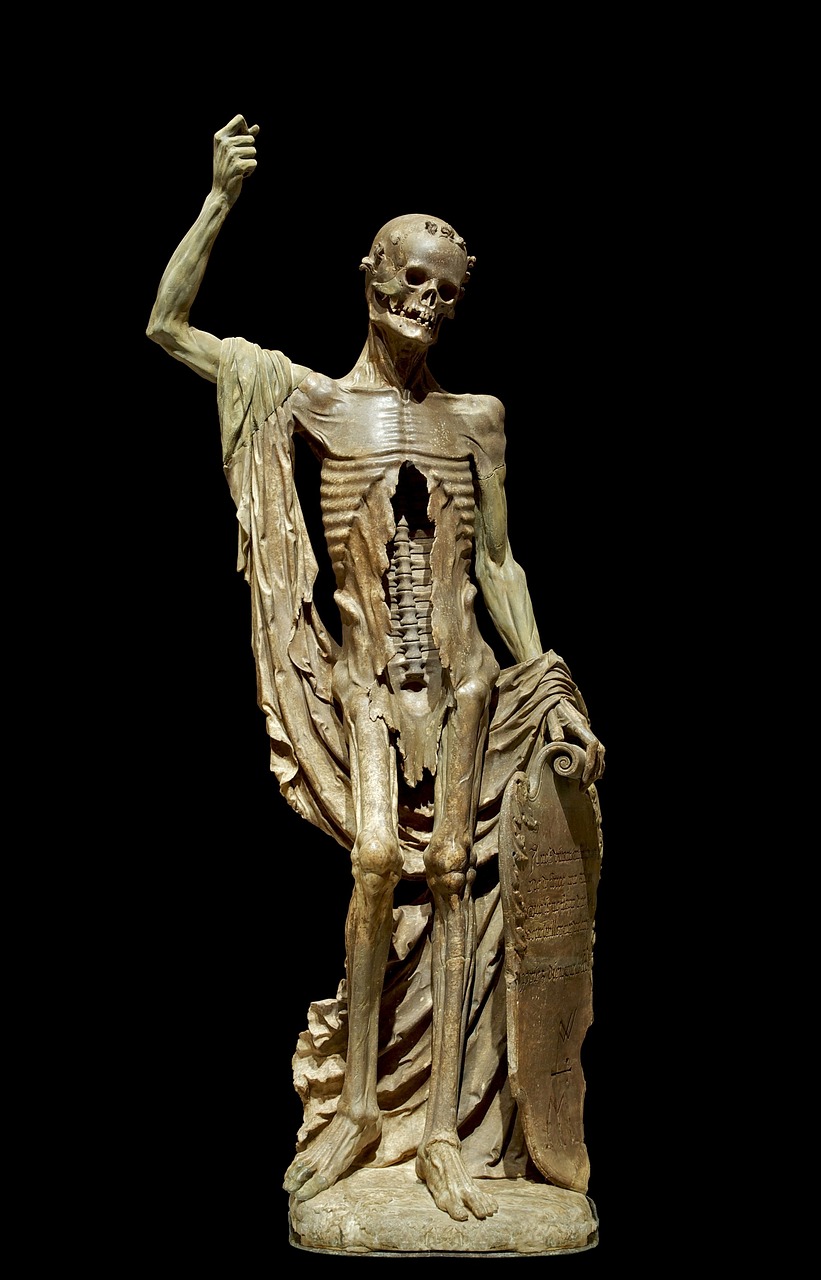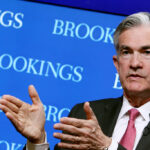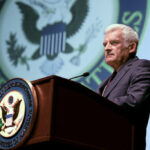Venezuela’s new term of presidency begins on January 10.
The problem, however, is that President Nicolas Maduro has declared himself as the victor of the July 28 elections without providing any evidence.
The opposition candidate Edmundo González declared himself the winner. He proved this by using the electoral records of polling station observers and thus he received the recognition and support of international communities such as Argentina, Chile, and the majority of LATAM.
We will look at different scenarios of Venezuela 2025, depending on the current political climate.
What is the Venezuelan economic scenario for 2025?
Aldo Conreras, an economist from Venezuela, provided an in-depth look at Venezuela’s future economic prospects by analyzing two scenarios for 2025.
According to him, if Nicolas Maduro stays in power the country would experience “very demanding growth”, with an increase in economic output of 4%-5%.
This nominal increase in GDP could bring it from $106 to $110 Billion, but the reality is that Venezuela has seen its economy collapse by 75% since the peak of $500 billion.
Contreras highlights the contradiction that exists: “This growth, in terms of percentages is something many countries have experienced, yet nominally the decline is catastrophic.”
Contreras predicts that Venezuela’s economy will worsen in this environment of difficulty, as inflation is expected to rise by 60% under Maduro.
The state may face severe gasoline shortages as a result of the increased economic sanctions that are likely to be imposed by Donald Trump’s inauguration on the 20th of January.
The current situation could stymie a possible recovery by resulting in lower revenues from foreign currencies and a falling exchange rate. This might worsen the crisis of cost-of-living for Venezuelans.
Contreras stresses the humane significance of economic issues. He states that “around 53% of the people live in extreme poverty”, which is defined by living on less than $1.25 a day.
The tax revenues have increased significantly, from $6 billion to $12 billion by 2024. However, this hasn’t translated into improved living conditions and salary increases.
Contreras is convinced that urgent changes are needed, as many of the residents earn an alarming $3 per month on average.
Venezuelan prospects are dim in 2025 without “solid international institutions” and an favourable economic environment. He emphasizes the need for governance and stability to achieve a genuine recovery of economic activity and social wellbeing.
Venezuelan oil revenue losses if Maduro remains in office
Contreras claims that if Nicolas Maduro remains in office, Venezuela will lose at least 12 billion dollars a year from oil revenue.
It is particularly foreseeable because of the anticipated withdrawal of major oil companies such as Chevron Repsol and Eni who have played a crucial role in Venezuela’s oil sector.
Growing penalties may lead companies to leave, which would then worsen economic conditions.
Venezuelan oil production would drop to a minimum of 500,000 barrels if these companies were no longer in business.
The government will also suffer from this dramatic drop in oil production.
This unsustainable $12 billion drop in oil revenues would have a devastating impact on the financial state of an already stressed economy.
If Maduro remains in power, who will do business with Venezuela?
Contreras explained that there is potential to do business with Venezuela, if Maduro remains in power. He also stated neighbouring countries like Colombia keep up with the President Gustavo Petro as he navigates a tight path between maintaining responsive diplomatic relations while avoiding/concealing border closures.
Brazil and Mexico also follow the example of caution, showing a careful balance in their approach towards Venezuela.
He thinks that other countries, such as Russia, Iran and Turkey, could do business with Venezuela alongside China. China is currently the main importer of Venezuela.
Contreras highlights the economic challenges Venezuela faces, including the inability to obtain financing abroad, the government debt, and difficulties in issuing new bonds.
The Venezuelan government is unable to effectively work with international partners because of these issues.
Economic difficulties are not only a source of concern, but they also limit the types of business relationships that can realistically be pursued.
What could happen if Edmundo Gonzalez, the opposition leader, ascends to power?
It is estimated that if Edmundo Gonzalez was to lead Venezuela, the country could experience an increase in Gross Domestic Product (GDP) of up to 50%.
Aldo Contreras, an economist at the University of California Berkeley noted that international financial institutions such as the International Monetary Fund (IMF) and World Bank would play a major role in accelerating this growth.
The rehabilitation of assets that are considered to be lost by the government, which is estimated at $700 billion dollars, has been deemed of vital importance in the revival of the economy.
Inflows of foreign investment, coupled with low country risks, can really put the economy in a strong position and create an environment that is conducive to substantial GDP growth.
Gonzalez can also be marked by a more aggressive approach to inflation control, leading to the possibility of a dual currency economy.
Aldo contreras believes that the return to a strong financial sector, and an improvement of credit facilities will be a milestone for economic stability.
The spread of skilled workers may help fill the gaps as the economy grows. Workers from abroad can be sent to assist in building national infrastructure such as roads, ports, airports and educational facilities.
Contreras stated that the target of moderate inflation will provide the necessary financing for the return to economic health.
Venezuela is about to be isolated
Pablo Quintero, a political analyst who spoke to ICD about the situation in Venezuela on 10 January, predicted that the Maduro regime would be acknowledged by the international community gradually and for the first time.
In order to make a comparison with the current situation in 2019, he argues that nations will navigate their diplomatic relations more based on each country’s interests.
Quintero makes it clear that a change of this magnitude will have a significant impact on Colombia’s trade relations, especially with Venezuela.
In addition to the effects of activating the border in Cucuta – a key junction for the cross-border trading – he claims that goods are also likely to stop moving.
Quintero, in addressing this wider international aspect, posits that a similar wave of nonrecognition could create intense diplomatic pressures. It may also lead to the economic isolation of Venezuela which would limit its ability for foreign investment and bank activities.
He talks about the sanctions that will be imposed. The overcompliance is what will show, and the enforcement will be like those in 2017 or 2019.
Quintero states that if the government is unable to demonstrate the actions that will prevent isolation, it can result in the marginalization of the individual.
Quintero makes a concern about the impact of international isolation on the domestic situation.
In his prediction, he predicts that the public will become more nihilistic in their thinking as they wonder who to trust in the next election.
Venezuelans fleeing the country are likely to be dissatisfied, and this could well explain their massive migration.
The humanitarian crisis will take on a serious turn if the number of people in the country reaches 2 to 5 millions, he says. This is due to the political and economic turmoil that has been affecting the nation for a long time.
What lies ahead for Venezuela’s opposition?
Pablo Quintero is a political expert who believes that Venezuelan opposition has very little chance of receiving any international support.
The international stage has been shifting and repeating since 2017, and the Yoyo effect was a major factor. This process is largely attributed to the benchmarks set by Juan Guaido, which abstracted the subject and blurred its focus on the entire planet.
In 2019, the Organization of American States, United Nations and U.S. Government did not have good outcomes.
Quintero, after mentioning the history, says that the international community will exercise more caution in the future due to different urgent conflicts, economic and geopolitical crises that will draw global attention. Venezuela won’t be the only issue of concern.
Quintero has therefore pointed out the necessity for a change in U.S. Policy. Quintero mentions in particular that for the moment, the U.S. has shifted its focus from Venezuela to the Middle East hypertension and fluctuating oil prices.
No Venezuelan opposition party can rely on this guarantee for progress to be made in non-conventional and independent political issues.
He was very clear when describing the dynamics within Venezuela’s political system.
Quintero claims that the military will not be able to sponsor the projects in the near future.
Quintero believes that in order to deal with internal problems, the opposition needs a more organized and focused approach, as well as a strategy.
The global distraction due to diversion and convolutions on the local political stage have created a situation where there are constraints. Analysts concluded that the only way for Venezuela to undergo a genuine change is if the Venezuelans are able to gain military support.
The post Venezuela at the Edge: Why January 10 is Crucial for Its Future may be updated as new information becomes available
This site is for entertainment only. Click here to read more






